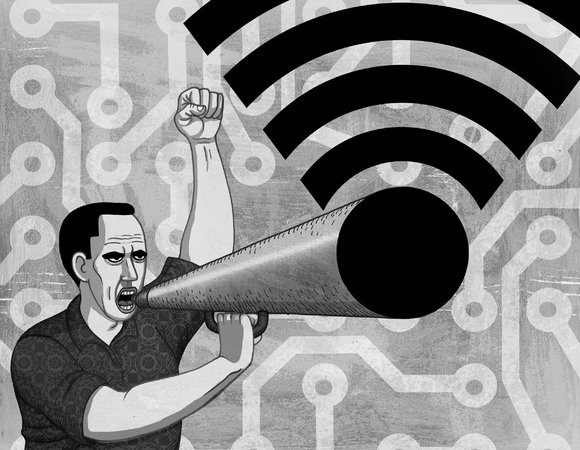 Sunday, April 15, 2012
Sunday, April 15, 2012  1 Reference
1 Reference  Social Media and the 2012 Election
Social Media and the 2012 Election
By Andrew Rasiej for Philadelphia Inquirer | April 15, 2012
Last year the world watched as Arab Spring protesters used the Internet and social media to organize demonstrations and to share them in real time across the globe, toppling Middle East dictators and reordering human history.
This year, technology and social media sites, most visibly Facebook and Twitter, continue to have a dramatic impact on the political world.
In January, millions of people signed online petitions and contacted members of Congress protesting efforts to pass poorly crafted legislation on online piracy. Lawmakers were forced to withdraw the bills. Similarly the Susan G. Komen for the Cure foundation was forced to reverse course on Planned Parenthood after a massive public outcry over its suspension of funding to the organization. And an international firestorm ensued after a small not-for-profit organization called Invisible Children brought attention to its cause — and in some cases not-so-welcome scrutiny upon itself — after it posted its Kony 2012 documentary.
More and more, social media are challenging institutions and the people who run them. The effects are echoing in the traditional chambers of political opinion-making, leaving TV pundits, talk-radio hosts, editorial page editors, political leaders, and others struggling to react and make sense of the new reality of citizens’ ability to make themselves heard quickly and loudly with just a few clicks on an app.
Paul LachineThe situation has many in power complaining. New York City Mayor Mike Bloomberg recently said, “We are basically having a referendum on every single thing that we do every day” — making governing for the long term hard or impossible.
Instead of complaining, the mayor should be cheering.
For decades, Americans have lamented the lack of citizen participation, exhibited recently by fewer than 57 percent of eligible voters making it to the polls in 2008, and only about 38 percent showing up in 2010.
There are reasons for citizens to be too discouraged to turn out on Election Day. With the gerrymandering of electoral districts our representatives pick their voters, instead of the other way around. Voter-registration efforts are under attack, and ballot access is being limited rather than expanded. If office holders really wanted to increase voter turnout, why don’t they move elections to Saturday, instead of having them on Tuesday when the majority of us are working?
Article for The Philadelphia Inquirer